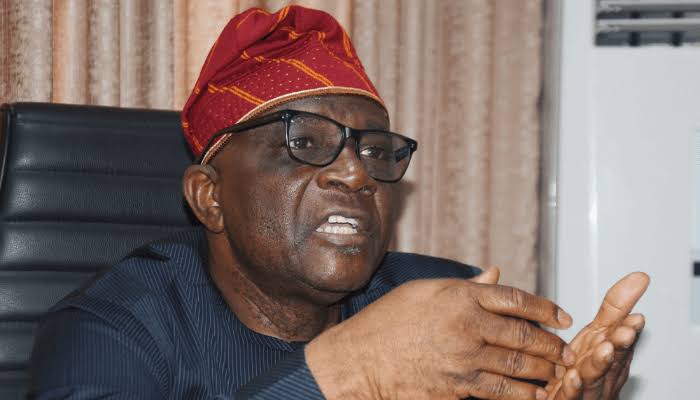Bayo Onanuga, the special adviser on information and strategy to President Bola Tinubu, has challenged remarks made by former Vice President Yemi Osinbajo regarding Tinubu’s relationship with former military leader Ibrahim Babangida.
The exchange stems from comments Osinbajo made during the launch of Babangida’s autobiography, A Journey In Service, where he humorously suggested that Tinubu was present at the event alongside those who had once caused him hardship.
Osinbajo recounted how Tinubu, elected as a senator in 1992 under Babangida’s political transition initiative, faced significant challenges after the 1993 election annulment.
When General Sani Abacha seized power and disbanded the senate, Tinubu resisted by attempting to revive the legislative body, leading to his arrest, trial, and eventual escape into exile.
Osinbajo quipped that Tinubu, now Nigeria’s president and commander-in-chief, was ironically celebrating with those he once opposed.
In response, Onanuga, appearing on Channels Television’s Sunrise Daily on Tuesday, clarified that Tinubu’s struggles were not tied to Babangida but began under Abacha’s regime, which took over after Babangida stepped down in 1993.
He emphasized that Tinubu himself acknowledged a debt of gratitude to Babangida, crediting him for inspiring his political journey.
Onanuga noted that Babangida’s push for “new breed” politicians had motivated Tinubu and others from business and technocratic backgrounds to enter the political arena.
“Tinubu attended the event to honour Babangida, who gave him the platform to become a senator in the early 1990s,” Onanuga explained.
He argued that Tinubu’s real difficulties started when Abacha cracked down on dissent, including Tinubu’s efforts with colleagues in Lagos to restore the senate.
This resistance led to his arrest and marked his emergence as a key figure in the National Democratic Coalition (NADECO), a pro-democracy movement formed after Babangida’s exit.
Onanuga dismissed the idea of Babangida as Tinubu’s primary adversary, highlighting their positive connection during Babangida’s tenure.
After the annulment of the 1993 election, widely believed to have been won by MKO Abiola, Tinubu joined NADECO to demand democratic restoration.
Facing persecution under Abacha, he went into exile in 1994, continuing the struggle abroad until Abacha’s death in 1998 paved the way for his return.
Back in Nigeria, Tinubu re-entered politics, winning the Lagos governorship in 1999 under the Alliance for Democracy (AD) banner during the transition to civilian rule.


